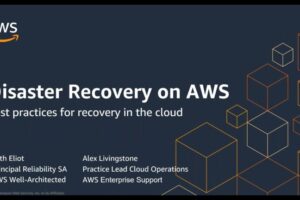Best Linux For Web Server
If you’re setting up a web server, you’re probably already aware that Linux is a popular choice for the operating system. But with so many Linux distributions to choose from, it can be overwhelming to decide which one to use for optimal performance. That’s why we’ve compiled a list of the top Linux OS for optimal web servers, each with its own strengths and benefits. First on the list is Ubuntu Server, which has gained popularity in recent years for its ease of use and frequent updates.
It’s based on the Debian architecture and comes with a wide range of pre-installed software packages, making it a great choice for those who want to get up and running quickly. Ubuntu Server also has a large and active community, meaning that there are plenty of resources available online for troubleshooting and support.
Ubuntu Server
If you’re looking for a reliable and user-friendly option for hosting your website, Ubuntu Server is definitely worth considering. Ubuntu Server is one of the most popular Linux distributions and is known for its stability, security, and ease of use. Its package management system is also very robust, making it easy to install and maintain software. One of the advantages of Ubuntu Server for web hosting is its strong community support. With a large number of users and developers, there’s a wealth of information available online in the form of forums, documentation, and tutorials.
This can be especially helpful for those new to Linux or web hosting in general. Compared to other Linux distributions, Ubuntu Server is also known for its frequent updates and security patches. This ensures that your server is always up to date with the latest software and security fixes. Additionally, Ubuntu Server has a wide range of software available in its repositories, making it easy to find and install the tools you need for your website hosting needs.
CentOS
If you’re looking for a stable and secure operating system for your web server, CentOS is a top choice. Its reputation as a reliable OS stems from its strong community support and well-documented resources. Moreover, being compatible with Red Hat Enterprise Linux, CentOS offers a range of enterprise-level features and support, making it a popular choice for businesses.
Stable and secure operating system
You want a stable and secure foundation for your website, something that won’t crumble under pressure or leave you vulnerable to attacks. One of the best options for this is a Linux operating system. Linux is known for its reliability and security, making it a popular choice for web servers. When it comes to choosing a specific Linux OS, you want one that is both stable and secure. One of the key benefits of virtualization is that it allows you to run multiple virtual servers on a single physical server. This can save you money on hardware costs and make it easier to manage your server infrastructure.
Additionally, virtualization can help improve security by isolating different applications and services from each other. Regular security updates are also crucial for maintaining a stable and secure web server. These updates help patch vulnerabilities and fix bugs that could be exploited by attackers. By keeping your server up-to-date with the latest security patches, you can reduce the risk of a successful attack and ensure that your website remains online and accessible to your users.
Strong community support and documentation
You’ll feel confident using a virtualization tool with strong community support and extensive documentation, allowing you to troubleshoot any issues and customize your server to meet your specific needs. Linux operating systems are well-known for their benefits of open source, which means that a community of developers and users are constantly working to improve the software and provide support to users. This also means that there are numerous forums and online communities where you can find solutions to any problems you may encounter while setting up or maintaining your web server.
In addition to the strong community support, Linux operating systems typically have extensive documentation available to users. This documentation can provide step-by-step instructions for the installation and configuration of your web server, as well as troubleshooting tips and best practices for optimization. With the combination of community support and documentation, you can feel confident in your ability to set up and maintain a stable and secure web server using a Linux operating system.
Compatibility with Red Hat Enterprise Linux
Imagine being able to seamlessly integrate your existing IT infrastructure with Red Hat Enterprise Linux, giving you peace of mind that your web server is compatible and running smoothly.
Red Hat Enterprise Linux is a highly stable and secure operating system that is widely used in enterprise environments. It offers a robust set of support options, including 24/7 customer support and access to a vast knowledge base and community forums.
When compared to other Linux distributions, Red Hat Enterprise Linux may seem relatively expensive, but this is due to its enterprise-level features and support options. However, its compatibility with other Red Hat products and the extensive documentation available make it a top choice for businesses that require a reliable and scalable web server. Additionally, Red Hat offers a free version of their operating system, CentOS, which is essentially the same as Red Hat Enterprise Linux without the enterprise-level support.
Debian
If you’re looking for a reliable and proven choice for your website hosting needs, Debian is a great option to consider. This Linux distribution is known for its stability and security, which makes it a popular choice for web servers. In fact, many web hosting companies use Debian as their operating system of choice. One of the reasons why Debian is a great choice for web servers is because of its customization options. You can configure the operating system to your specific needs, which allows you to optimize your server for performance and security.
Whether you need to install custom software or tweak the system settings, Debian gives you the flexibility to do so.
Another advantage of Debian is its package management. The Debian package manager, APT, is known for its reliability and ease of use. With APT, you can easily install, update, and remove software packages on your server. This makes it easy to keep your server up-to-date with the latest security patches and software updates. Overall, Debian is a great choice for anyone who needs a reliable and customizable operating system for their web server. With its stability, security, customization options, and package management, Debian is a popular choice for web hosting companies and individual website owners alike.
Fedora Server
Fedora Server is a fantastic option for those looking for a user-friendly and modern operating system that can handle a wide range of tasks and applications. This Linux OS is known for its cutting-edge technologies and customization options, making it ideal for web servers. It is also highly performant, with impressive performance benchmarks that demonstrate its speed and reliability.
One of the standout features of Fedora Server is its customization options. Users can easily tailor the OS to their specific needs, whether they are running a small website or a large e-commerce platform. This flexibility allows for greater control over the server’s configuration and can lead to improved performance and security. Additionally, Fedora Server comes with a range of tools and applications that are specifically designed for web hosting, such as Apache, Nginx, and MySQL.
When it comes to performance benchmarks, Fedora Server does not disappoint. It consistently ranks highly in speed tests and is known for its reliability and stability. This is crucial for web servers, where downtime can result in lost revenue and a damaged reputation. With Fedora Server, users can expect a fast and responsive system that can handle high traffic volumes without slowing down or crashing. Overall, Fedora Server is a strong contender for anyone looking for a top Linux OS for optimal web server performance.
| Pros | Cons |
|---|---|
| Cutting-edge technologies | Not as widely used as some other Linux OS |
| Flexible customization options | May require more technical expertise to set up |
| Strong performance benchmarks | Updates can be more frequent and potentially disruptive |
| Excellent web hosting tools and applications | Not supported by all web hosting providers |
| Highly stable and reliable | Less suitable for less resource-intensive applications |
OpenSUSE Leap
Moving on from Fedora Server, let’s talk about another Linux operating system that is ideal for web servers – OpenSUSE Leap. OpenSUSE Leap is a free and open-source Linux distribution that is based on the SUSE Linux Enterprise Server (SLES). Unlike its rolling-release counterpart, OpenSUSE Tumbleweed, Leap is a stable release that is designed for long-term support. This makes it a preferable choice for servers that require reliability and stability over the latest features.
While OpenSUSE Leap is primarily designed for desktop use, it can also be an excellent choice for server use. Its stability makes it a perfect fit for businesses and organizations that require a stable platform for their web servers. Additionally, OpenSUSE Leap has a robust set of networking tools and features that make it easy to set up and manage servers. Whether you are running a small website or a large-scale web application, OpenSUSE Leap has everything you need to get started.
Another great feature of OpenSUSE Leap is its ease of use. The installer is user-friendly and straightforward, making it easy even for beginners to set up a server. Furthermore, OpenSUSE Leap has a vast repository of software packages, including popular web server software like Apache, Nginx, and MySQL. This means that you can quickly set up a web server without having to manually install and configure each component. Overall, OpenSUSE Leap is an excellent choice for those who want a stable and reliable Linux distribution for their web server needs.
FAQs
What are the hardware requirements for running these Linux OS on a web server?
To ensure hardware compatibility and performance optimization when running Linux OS on a web server, you need to pay close attention to the server’s specifications. First and foremost, you’ll want to make sure that your server has enough RAM and CPU power to handle the traffic and workload you expect. The amount of storage needed will depend on the size of your website and any data you’ll be storing.
Additionally, it’s important to choose a network interface card (NIC) that supports high-speed data transfer and can handle the amount of traffic you expect to receive. Finally, you’ll need to make sure that your server is equipped with any necessary hardware for your specific needs, such as a RAID controller for redundancy or a high-end graphics card for video rendering. By carefully considering your hardware choices, you can ensure that your Linux OS web server is optimized for performance and can handle any workload you throw at it.
How do these Linux OS differ in terms of security features?
When it comes to Linux OS security mechanisms for web servers, there are various features available that differ between distributions. For instance, CentOS has a robust firewall and SELinux security policies, while Ubuntu has AppArmor and an easy-to-use firewall configuration tool. Debian offers a secure default configuration and excellent encryption options, while Fedora has SELinux enabled by default and strong cryptography support. Generally, the comparison of Linux OS security features for web servers comes down to the distribution’s approach to system hardening, software updates, and user management. It’s essential to choose a distribution that aligns with your security needs and to keep the OS updated regularly to ensure optimal security.
Is there any specific web server software that is pre-installed in these Linux OS?
Web server software compatibility is an important factor when choosing a Linux OS for your web server needs. While some Linux OS may come with pre-installed web server software, such as Apache or Nginx, others may not. It’s important to research which web server software is supported by your chosen Linux OS and if it meets your needs. However, custom installation of web server software can have its advantages such as increased security and flexibility in configuration.
It allows you to install only the necessary components and avoid any potential security vulnerabilities that may come with pre-installed software. Overall, it’s important to consider both the compatibility of pre-installed web server software and the advantages of custom installation when choosing a Linux OS for your web server.
Can these Linux OS be used for hosting different types of websites, such as e-commerce and blogs?
When it comes to hosting different types of websites, Linux OS provides scalability options to meet the needs of e-commerce and blog hosting. The performance comparison between Linux OS for e-commerce and blog hosting is dependent on the specific requirements of the website. However, Linux OS is known for its reliability and security, making it a popular choice among web developers. Additionally, Linux OS offers flexibility and customization options for advanced users, allowing them to optimize their servers for their specific needs. Overall, Linux OS is a viable option for hosting various types of websites, and its scalability options and performance depend on the specific requirements of the website.
How frequently are these Linux OS updated, and what is the update process like?
When it comes to updating your Linux OS, it’s crucial to stay on top of things. After all, outdated software can leave you vulnerable to security breaches and performance issues. Fortunately, most Linux distributions offer regular updates to keep your system running smoothly. The frequency of these updates can vary depending on the distribution, but most offer a rolling release model that provides continuous updates rather than a major release every few years.
As for the update process itself, it typically involves downloading and installing new packages via a package manager. While this can vary slightly depending on your distribution, the general process is straightforward and easy to follow. Just be sure to back up your important data before starting the update process in case anything goes wrong.
So, there you have it – the top Linux operating systems for optimal web server performance. By now, you should have a good understanding of the strengths and weaknesses of each of the Linux distributions we’ve covered. Ultimately, the right choice for you will depend on your specific needs and preferences. It’s important to note that while there are certainly differences between these operating systems, they all share a common foundation in Linux.
This means that you can expect similar levels of stability, security, and flexibility regardless of which distribution you choose. And if you’re willing to put in the time and effort to learn the ins and outs of your chosen Linux distribution, you’ll be rewarded with a powerful and customizable web server that can meet the needs of even the most demanding websites.








